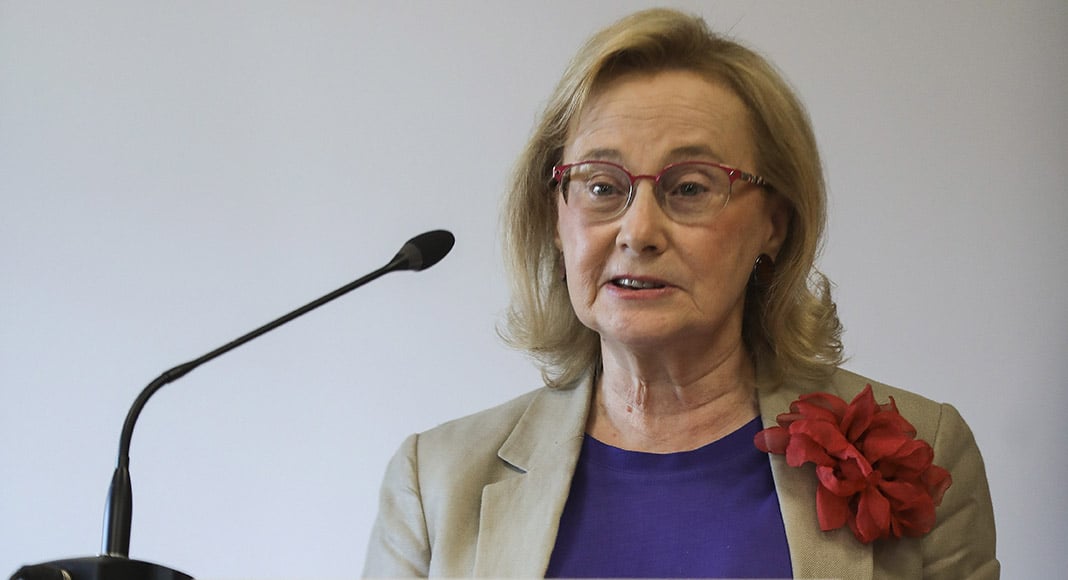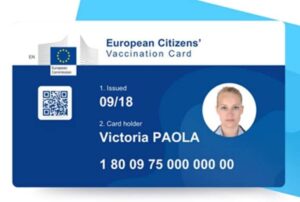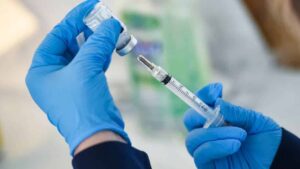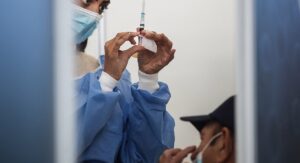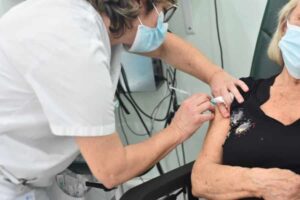After weeks of dilly-dallying and mixed messaging, Portugal’s DGS health authority announced last Friday that, “for the time being”, only children in the 12-15 age-group with “serious underlying diseases” should be vaccinated against Covid-19.
There is still not sufficient scientific evidence to show that rolling out the vaccines in this age group will have more benefits than risks.
Had director of health Graça Freitas stopped there, it may have been all right. But as she has in the past made no bones about her own preference that all children in these age groups should end up being vaccinated, she added that parents of healthy children who would like their children jabbed were welcome to put them forward, as long as they were furnished with a doctor’s prescription.
In other words, the ‘decision’ on whether or not it was wise to vaccinate the under-18s (a group for which these new vaccines were not originally trialed) was suddenly ‘removed’ from both the DGS and parents and given to doctors – some of which will be all for mass child vaccination, others of which won’t.
And so began a confusion that is still raging.
Adding to the general dissatisfaction with Graça Freitas’ announcement was the reality that a list of ‘serious underlying diseases’ qualifying children for the vaccine was not published promptly – so parents of sons and daughters with any condition were in a deeper quandary. Is asthma a ‘serious underlying disease’? Would ‘allergies’ qualify?
Questions were endless – as were calls trying to get through to already overworked health centres.
On Tuesday evening, it became clear that the DGS considered children with “active cancers, diabetes, chronic renal insufficiency and obesity” were seriously at risk from Covid-19 (and, therefore, eligible for vaccines without a doctor’s prescription), as were those who were immunosuppressed, suffering cerebral palsy, developmental difficulties and Down Syndrome.
But, by this time, many parents were in a frenzy of indecision.
Miguel Guimarães, president of the General Medical Council (Ordem dos Médicos), says it is ‘urgent’ that the DGS make a ‘rapid revision’ of its ‘norma’ (rule), which he claims is causing “brutal inequalities” between children and parents who can access a doctor and a prescription, and those who can’t (update: this has since been done (click here).
“This is a time when access to healthcare is already very conditioned. All resources should be focused on the recovery of patients, not on a bureaucratic procedure” (like the filling out of prescriptions), he said.
A communiqué sent out by the ‘Ordem’ said the very fact that the DGS was prepared to let healthy children be vaccinated depending on a doctor’s prescription “contradicts the reasoning that there is not sufficient scientific evidence” to show this is necessary.
Himself a clear advocate for all children from the ages of 12 being eligible for Covid vaccines, Miguel Guimarães stressed that by opening access to the vaccines, the younger generation would be “protected from the physical, psychological and social threat that this virus has represented for the life of all of us”.
Cocking a snook at the ongoing chaos, Herberto Jesus, regional health director in Madeira, remarked that “the virus loves countries with lots of experts”.
Madeira – an autonomous region – prides itself on having just the right number of experts who all appear to agree with each other.
As a result, the archipelago has moved forwards robustly with vaccinating 12–15-year-olds – healthy or otherwise – and these have been filing up for their jabs since last weekend.
Topping off the inconsistencies comes the DGS decision to move forwards with the vaccination of teens aged between 16-17, starting on the weekend of August 14 and 15) – even though the lack of scientific evidence over whether risks to this group outweigh benefits is still an issue.
WHY THE INDECISION?
In the maelstrom of confusion, people may have forgotten why the vaccination of healthy children has so divided the medical profession and legions of pandemic experts.
The short answer is that children manifest reactions to infection by Covid-19 in very different ways to adults. They are rarely serious: a new study out of King’s College in England this week shows that in the 5–13-year age group, symptoms last ‘less than a week’ and are invariably light.
Conversely, countries that have moved forwards with the vaccination of young people/teens have recorded a higher-than-average incidence of heart inflammation.
None of the problems have been ‘long-term’, which is why many countries, including France, Israel and the United States, have taken the decision to vaccinate children from the age of 12.
One of the arguments used in Portugal recently was that by vaccinating children, the country would move closer to the point where a high enough percentage of citizens had been vaccinated to reach ‘herd immunity’.
This is very debatable, particularly as the 12-15 age group only represent around 5% of the national population.
Some experts argue that herd immunity is an illusion, as further variants will be coming down the line that could potentially precipitate ‘vaccine escape’ (a point where vaccines are not sufficiently protective) – others point to studies that suggest that the more one vaccinates, the more the likelihood of the virus finding ways to outwit the vaccine.
The important point for parents to hold on to is that whatever the DGS recommends for children, these vaccines are not mandatory.
Just as doctors are currently expected to write out prescriptions for healthy children whose parents would prefer them to be vaccinated against Covid-19, so they will be within their rights to write out declarations as to why a child may not be eligible, in spite of his/her age.
The words of Graça Freitas a little under a month ago show the direction this country is going, albeit slowly: “Everyone will realise, young or not young, that sooner or later we all have to be vaccinated.
“The great difference is that some will be vaccinated with a wild virus, and pay the price for this immunity which is being ill – and others will have the opportunity of becoming immunised through a vaccine that is safe, efficacious and has quality.”
By NATASHA DONN
natasha.donn@algarveresident.com

